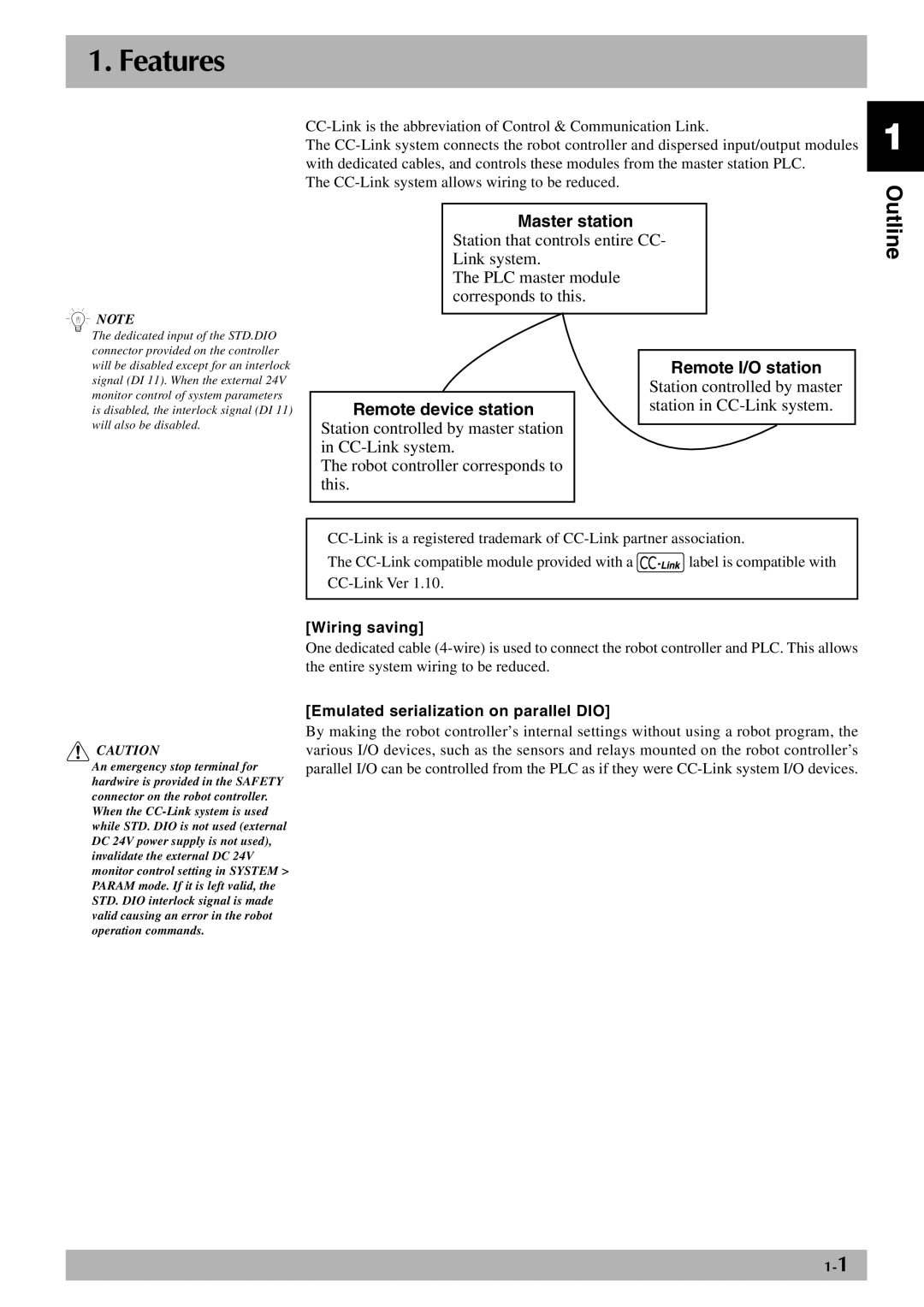
1. Features
The
The
1
n NOTE
The dedicated input of the STD.DIO connector provided on the controller will be disabled except for an interlock signal (DI 11). When the external 24V monitor control of system parameters is disabled, the interlock signal (DI 11) will also be disabled.
Master station Station that controls entire CC- Link system.
The PLC master module corresponds to this.
| Remote I/O station |
| Station controlled by master |
Remote device station | station in |
Station controlled by master station |
|
in |
|
The robot controller corresponds to |
|
this. |
|
Outline
c CAUTION
An emergency stop terminal for hardwire is provided in the SAFETY connector on the robot controller. When the
The ![]() label is compatible with
label is compatible with
[Wiring saving]
One dedicated cable
[Emulated serialization on parallel DIO]
By making the robot controller’s internal settings without using a robot program, the various I/O devices, such as the sensors and relays mounted on the robot controller’s parallel I/O can be controlled from the PLC as if they were
